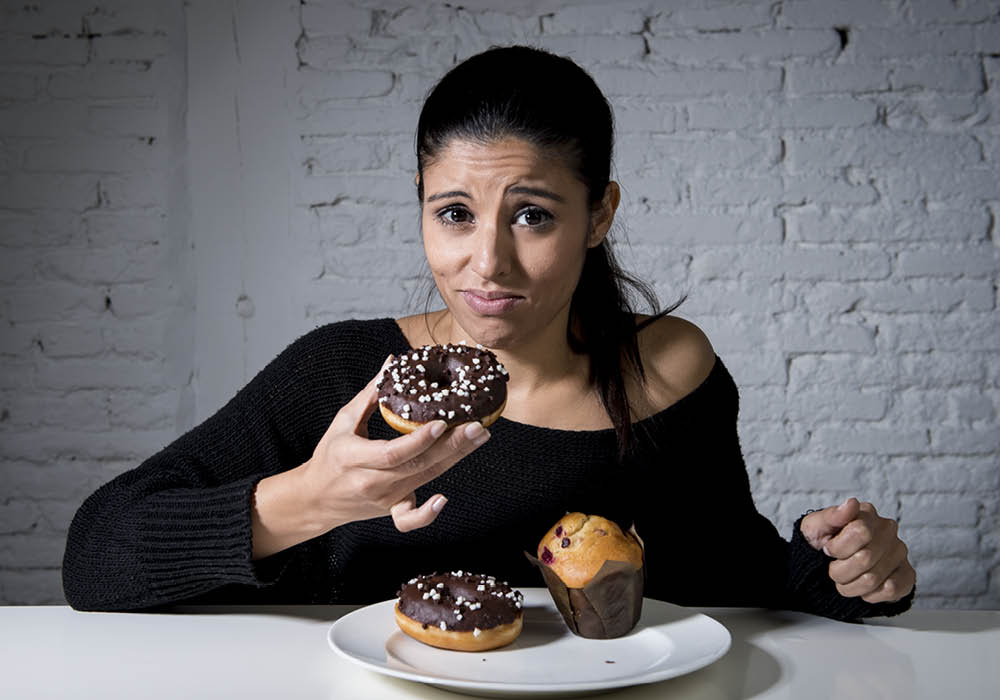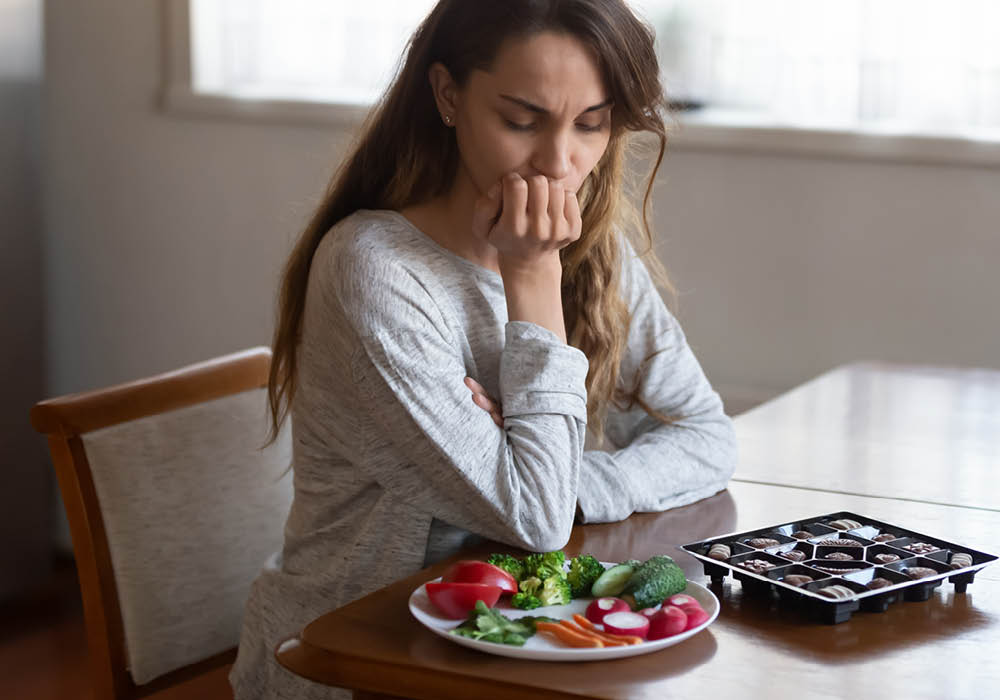Food, at its best, may provide a sense of joy, connection, and fulfilment while also providing nourishment for your body. However, for many people who suffer from food guilt or shame, it can instead evoke unpleasant emotions. Such damaging sentiments about food are ubiquitous in a society steeped in diet culture, and not just among those with eating disorders. Unchecked guilt and shame about food can have a negative impact on your relationship with food, as well as your mental health and well-being.
Recognising these feelings—and where they originate from—is critical, and there are steps you can take to lessen their effect on you. But before you think about what you can do to modify your internal narrative, it's a good idea to understand what these sensations represent and what might be causing them.

What Is Food Guilt?
While feelings of shame and guilt are often attributed to each other, there is a difference between the two. According to Ms Mehezabin Dordi, clinical psychologist, rehabilitation, and sports medicine department, Sir HN Reliance Foundation Hospital, Mumbai, 'When you believe you've done anything wrong, you'll feel guilty. Stealing, injuring someone, being impolite, lying, and cheating are all examples of wrongdoing. All of these are acceptable acts for which to feel guilty. However, you are not born understanding that these actions are wrong or that you should feel bad about them.'
She further goes on to explain, 'Food guilt is something that is taught rather than something that a person is born with. It usually begins with the realisation that food is either ‘healthy’ or ‘unhealthy’. When the goal of ‘eating healthy’ is followed to its logical conclusion, such as with diets like ‘clean eating’, any imagined ‘unhealthy’ meal causes shame.'

Causes And Further Health Complications
The primary cause of food guilt, Ms Dordi says, is the knowledge that food is unhealthy. 'Foods with a high sugar content and overeating have also been identified as primary sources of guilt,' she says.
Furthermore, food guilt can lead to other health complications, both in terms of physical and mental well-being. Ms Dordi expounds, 'Food guilt can have a negative impact on your mental and emotional health, as well as lead to disordered eating behaviours that are harmful to both your physical and mental health. Excessive guilt can make you feel down, as well as cause mood swings and anger. In addition to feeling guilty about eating, food guilt prevents you from truly enjoying and appreciating your food.'

Strategies To Overcome Food Guilt
It takes time and effort to overcome food guilt. Even if you realise that you want to have a positive connection with food and experience food freedom, you will still feel guilty or ashamed, especially while consuming foods that have been labelled as 'bad' in your head or after overindulging.
It's perfectly normal and acceptable to have cognitive patterns that aren't in line with a healthy relationship with food. Know that it will take a lot of compassion, patience, practise, and support to truly help you reframe your mind-set surrounding your connection with food and eliminate the guilty feelings.
Some strategies to deal with food guilt, as shared by Ms Dordi are:
1. Avoid nutritional mandates: We rely on our brains too much to tell us what to eat. Getting caught up with the number of calories or whether a food is good or terrible can impede you from moving forward. Instead, listen to your body for guidance. Pay attention to how your body is feeling.
2. Allow your weight to work itself out: Once you stop blaming yourself for eating too much, you may find yourself eating more and even gaining weight. On the other hand, many people discover that they lose weight as a result of this procedure, which is likely due to guilt causing them to overeat forbidden items. In either case, it's critical to note that weight tends to stable over time.
3. Identify your 'shoulds' and 'shouldn'ts': Start noticing how often the word 'should' appears in your inner monologue. Adding compulsions will enhance guilt and, as a result, produce greater emotional problems.
4. Try mindful eating: Slow down and concentrate on resisting guilt and shame, which can cause you to lose touch with your natural cues. Take a few deep breaths and observe your emotions and hunger level before eating a bite. As you go along, take note of all of your sensory impressions, including colours, textures, and flavours. You'll recognise when you're full, but you'll also hopefully learn that it was a satisfactory meal.
5. Make an effort to be kinder to yourself: Self-compassion might help you feel less guilty and ashamed. But being good to oneself isn't always simple. Shifting perspectives can sometimes make untangling simpler. What would you say to a buddy who is going through something similar? This can assist us in being more sympathetic and attentive of others and ourselves.